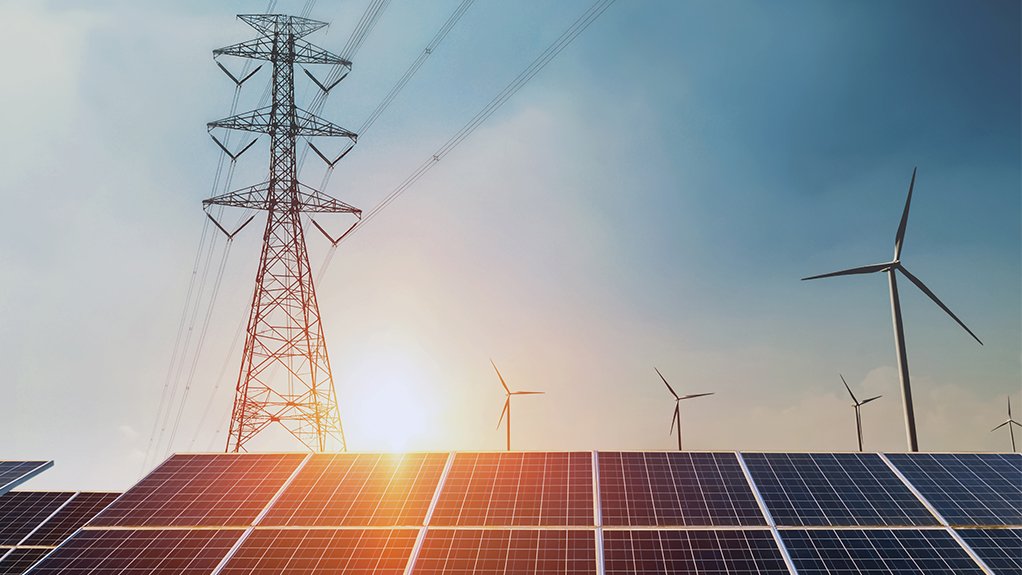REIPPPP requires more traction to address challenges



PROCUREMENT ROAD MAP The Department of Mineral Resources and Energy will seek to procure 6 800 MW of solar photovoltaic and wind renewable energy from 2022 to 2024
WESSEL WESSELS Private renewable generation eases the burden on the budget, consequently allowing for funding to be allocated to other important elements of the fiscus
The Renewable Energy Independent Power Producer Procurement Programme (REIPPPP) continues to take years to move through the various phases – from initiating tenders to delivering energy to the end-user – which, considering the challenges that South Africa is facing, is a luxury the country cannot afford, says technology provider NEC XON alternative energy sales head Wessel Wessels.
These challenges include unreliable energy supply because of ageing electrical transmission and distribution infrastructure, ultimately resulting in power outages and load-shedding, and an economic downturn, owing to the Covid-19 pandemic.
Building energy farms in the 100 MW category will be a good long-term solution, but Wessels points out that these solutions, deployed as part of the REIPPPP, cannot be bought on line overnight, owing to the regulatory environment, as well as the controls and protocols attendant on government spending, besides others.
“NEC XON supplies solutions suitable for the grid utility space, covering generation and storage. “However, it is going to take longer [than hoped] to realise the benefits from the REIPPPP.”
The “stumbling block” in addressing the current challenges is not funding, but bankable projects, he declares.
“It is all about delivering sustainable projects quickly, which generate revenues, deliver energy to the industries that need it, protect jobs and even create new jobs, while stimulating industry and general economic growth.”
This may seem contradictory, Wessels adds, but deregulating generating capacity – which has been the case in mining and municipalities – for all industries will enable the renewable energy industry to assist the country in achieving its energy needs to stimulate economic recovery.
He highlights that there is no need for government or State-owned power utility Eskom to finance privately funded renewable generation. Private renewable generation eases the burden on the budget, consequently allowing for funding to be allocated to other important elements of the fiscus.
“The more private enterprises adopt the move to renewable energy, the cheaper the solutions will become and the more demand we create. “This will create jobs, stimulate the economy, and create wealth that can support important national projects,” Wessels notes.
Such memonetum could even lead to the local manufacturing of renewable-energy technology in South Africa, as some of the raw material is locally available, he adds.
He further mentions that the National Energy Regulator of South Africa (Nersa) has the key to unlock the solution to benefit Eskom, the economy and the industries that need the electricity.
“Nersa has the right skills and has proven to be capable of taking the right decisions to enable organisations to quickly deliver the required value for all parties. “This just needs to happen quicker and be more predictable.”
In September Nersa concurred with the Mineral Resources and Energy Minister Gwede Mantashe’s proposals for the procurement of 11 813 MW of power as stipulated in the Integrated Resource Plan 2019. This enables the Department of Mineral Resources and Energy (DMRE) to procure additional electricity. As such, the DMRE will seek to procure 6 800 MW of solar photovoltaic and wind renewable energy from 2022 to 2024. About 513 MW is to be sourced from storage in 2022, about 3 000 MW from gas between 2024 and 2027, and about 1 500 MW from coal from 2023 to 2027.
Additionally, Nersa also released a media statement in October, stipulating that projects bigger than 1 MW will no longer require Ministerial approval, and that excess power can be wheeled to a related operation without the need for a trading licence, as long as both are Eskom customers.
For example, a mine generating power at one site can wheel excess power to another site that is part of the same group.
Wessels notes that Nersa’s notice to acquire these additional megawatts, which will result in expensive projects that take time to come on line, will result in “much of the cost [being] shifted to private enterprise while positioning Eskom to be more profitable, meet the energy demands of the country and meet the national objective to support general economic stimulation more rapidly”.
Moreover, he tells Engineering News that the REIPPPP is a “great idea” and will be a big part of the long-term solution in the industry at large.
Article Enquiry
Email Article
Save Article
Feedback
To advertise email advertising@creamermedia.co.za or click here
Press Office
Announcements
What's On
Subscribe to improve your user experience...
Option 1 (equivalent of R125 a month):
Receive a weekly copy of Creamer Media's Engineering News & Mining Weekly magazine
(print copy for those in South Africa and e-magazine for those outside of South Africa)
Receive daily email newsletters
Access to full search results
Access archive of magazine back copies
Access to Projects in Progress
Access to ONE Research Report of your choice in PDF format
Option 2 (equivalent of R375 a month):
All benefits from Option 1
PLUS
Access to Creamer Media's Research Channel Africa for ALL Research Reports, in PDF format, on various industrial and mining sectors
including Electricity; Water; Energy Transition; Hydrogen; Roads, Rail and Ports; Coal; Gold; Platinum; Battery Metals; etc.
Already a subscriber?
Forgotten your password?
Receive weekly copy of Creamer Media's Engineering News & Mining Weekly magazine (print copy for those in South Africa and e-magazine for those outside of South Africa)
➕
Recieve daily email newsletters
➕
Access to full search results
➕
Access archive of magazine back copies
➕
Access to Projects in Progress
➕
Access to ONE Research Report of your choice in PDF format
RESEARCH CHANNEL AFRICA
R4500 (equivalent of R375 a month)
SUBSCRIBEAll benefits from Option 1
➕
Access to Creamer Media's Research Channel Africa for ALL Research Reports on various industrial and mining sectors, in PDF format, including on:
Electricity
➕
Water
➕
Energy Transition
➕
Hydrogen
➕
Roads, Rail and Ports
➕
Coal
➕
Gold
➕
Platinum
➕
Battery Metals
➕
etc.
Receive all benefits from Option 1 or Option 2 delivered to numerous people at your company
➕
Multiple User names and Passwords for simultaneous log-ins
➕
Intranet integration access to all in your organisation



















